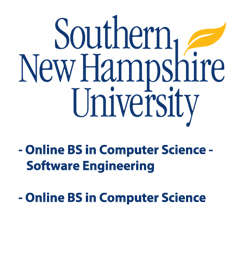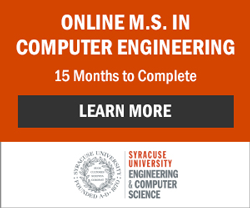
Virginia-Wise’s Small Computer-Science Department Draws Big-Name EmployersBy Rick Docksai While Virginia’s Department of Mines, Minerals, and Energy could find student interns in any one of the departments on the University of Virginia-Wise campus, it seeks out one department year after year: Computer Science. The agency selects four students annually from the school’s Department of Mathematics and Computer Science to work as interns—a sure indicator of the growing value that employers in Virginia and elsewhere place on computer software expertise.  “They’re really looking for people who can become software developers,” says Alex Edwards, the Mathematics and Computer Science Chair. He’s speaking of the state agency in the sentence above, though he could well be speaking of any of tens of thousands of other employers throughout the country. Software developer CGI and military engineering firm Northrop Grumman, among other prominent employers located in Virginia, regularly send representatives to campus to tell students about internship and job opportunities. “All we have to do is ask and they will send somebody out. They both (CGI and Northrop Grumman) often ask when we’re having career fairs so they can send someone over,” Edwards says. “All we have to do is ask and they will send somebody out. (CGI and Northrop Grumman) often ask when we’re having career fairs so they can send someone over" - Edwards
In fact, many graduates from Edwards’ department—as many as half in some years, the professor estimates—land permanent jobs at CGI. It helps that the firm’s 400-employee facility is a mere 40 minutes from the college. Northrop Grumman and the Department of Mines, Minerals, and Energy are also close, and both have some of Edwards’ graduating students in their workforces, as well. Different Degrees, Similar Career PathsEdwards and his colleagues distinguish between computer science and software engineering. Students can pursue a degree in either. The software-engineering students branch off, beginning in their sophomore year, by taking classes on software testing, project management, and configuration management, and other software-engineering-specific subjects. Edwards’ colleague Robert Hatch, a computer-science assistant professor, teaches some software engineering courses. His students cover software-specific subject areas such as software design patterns, software construction, and human-computer interaction (HCI). Software-engineering students have an additional requirement come senior year: the capstone project, a yearlong project that the entire software-engineering class takes on and completes as a group. The project entails building a software app or program that a that a real-life client can use. “The computer-science degree is much more flexible. They’ll have more opportunities to take various types of electives and to study what they want to study,” says Somervell
The class of 2010 chose the campus post office as its client. The seniors developed a package-tracking system so that when packages arrived, the post office would check it, the student recipient would receive an e-mail notification to come pick it up, and then, once the student had taken the package, the post office crew could check the package off as received. The class of 2011 produced an Android app for a company to use to track the movements of its products. A professor and a representative of the client office offer each capstone-engaged class guidance, and the students have 24-hour access to the campus computer labs—a privilege that not every student has, since campus security locks the labs at night. “It’s a small enough campus that the campus police know who you are and will let you in if you have something to do,” Edwards says. They might even work with students who aren’t in the class. Edwards says that some computer-science students earn credit by helping the software-engineering students on capstone projects. Software engineering academic programs at U.S. colleges often require a capstone project component, and may require students to work as individuals or in small groups of two or three. The Wise approach of bringing the entire class together onto a project is a plus, according to Edwards, since a whole class can achieve far more than a student working on his or her own. Moreover, it ensures that those students are well-practiced at teamwork—a skill that Edwards says will be critical to them throughout their professional lives. “When they go out and work in software engineering professionally, they’re going to be working in teams. We want to give them a good idea of some of the things that they’re going to work with and what it will be like,” Edwards points out. While software engineering may teach students some specific skill sets that the computer science does not, it is nonetheless more restrictive, according to Jacob Somervell, a Wise associate professor of computer science. Computer science is the core knowledge base upon which software engineering builds, and thus more generalized. “The computer-science degree is much more flexible. They’ll have more opportunities to take various types of electives and to study what they want to study,” says Somervell. “The software-engineering students are much more focused on software development, so they lose some of the breadth.” Edwards agrees. He notes that some electives that computer-science students take for credit—artificial intelligence, for example—aren’t ones that software-engineering students can so easily fit into their curricula. The two groups’ career tracks consequently differ, he adds. Software-engineering graduates get the jobs in software development—working with C++, Java, and other programming languages. Computer-science graduates might work as database administrators, for example, or with computer hardware. But the two career tracks converge to an extent, as well. Both camps take up work on database design, for instance. And any company that hires a software-engineering professional will likely bring a few computer-science professionals on board to work with him or her on the very same projects, according to Edwards. “Many students end up working in companies side by side even if one is a computer scientist and the other is a software engineer, so there is overlap,” he says. The Few and the ProudDespite the abundant career opportunities, the Wise College of Math and Computer Science remains fairly small: about 10 or 12 graduating seniors a year, of which only six or seven are computer-science or software-engineering majors (the rest earn Math and MIS degrees). That’s hardly a problem for the students, of course. Their small numbers ensure that they will have bountiful choices among the computer-science/software-engineering job vacancies cropping up in Virginia and throughout the country. |

